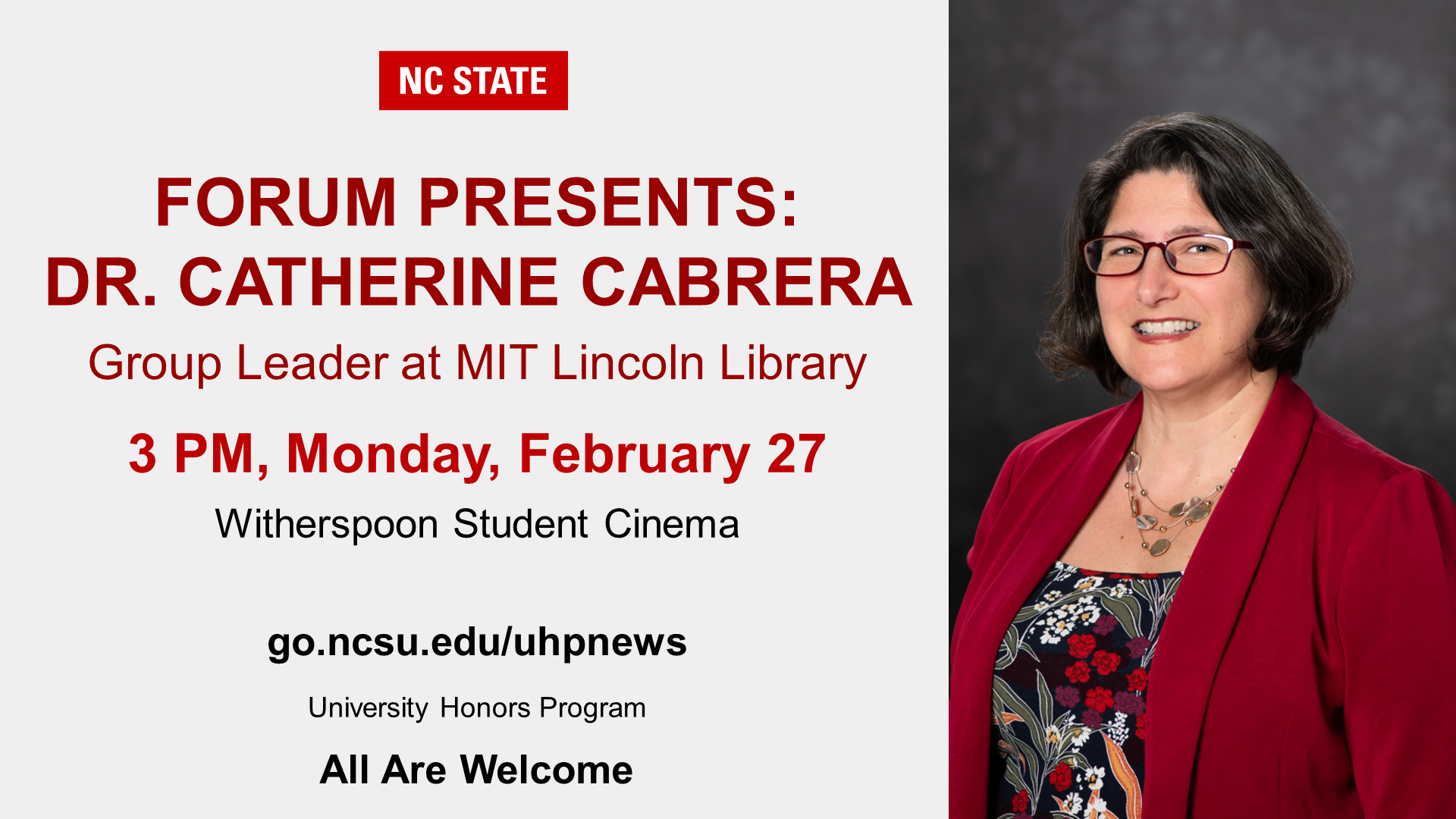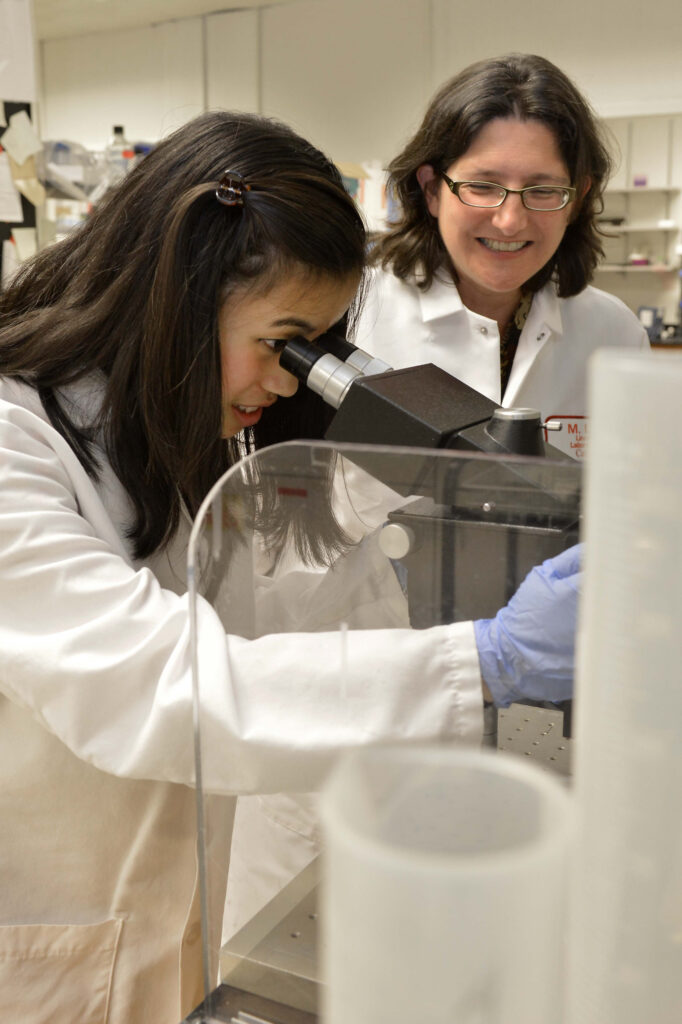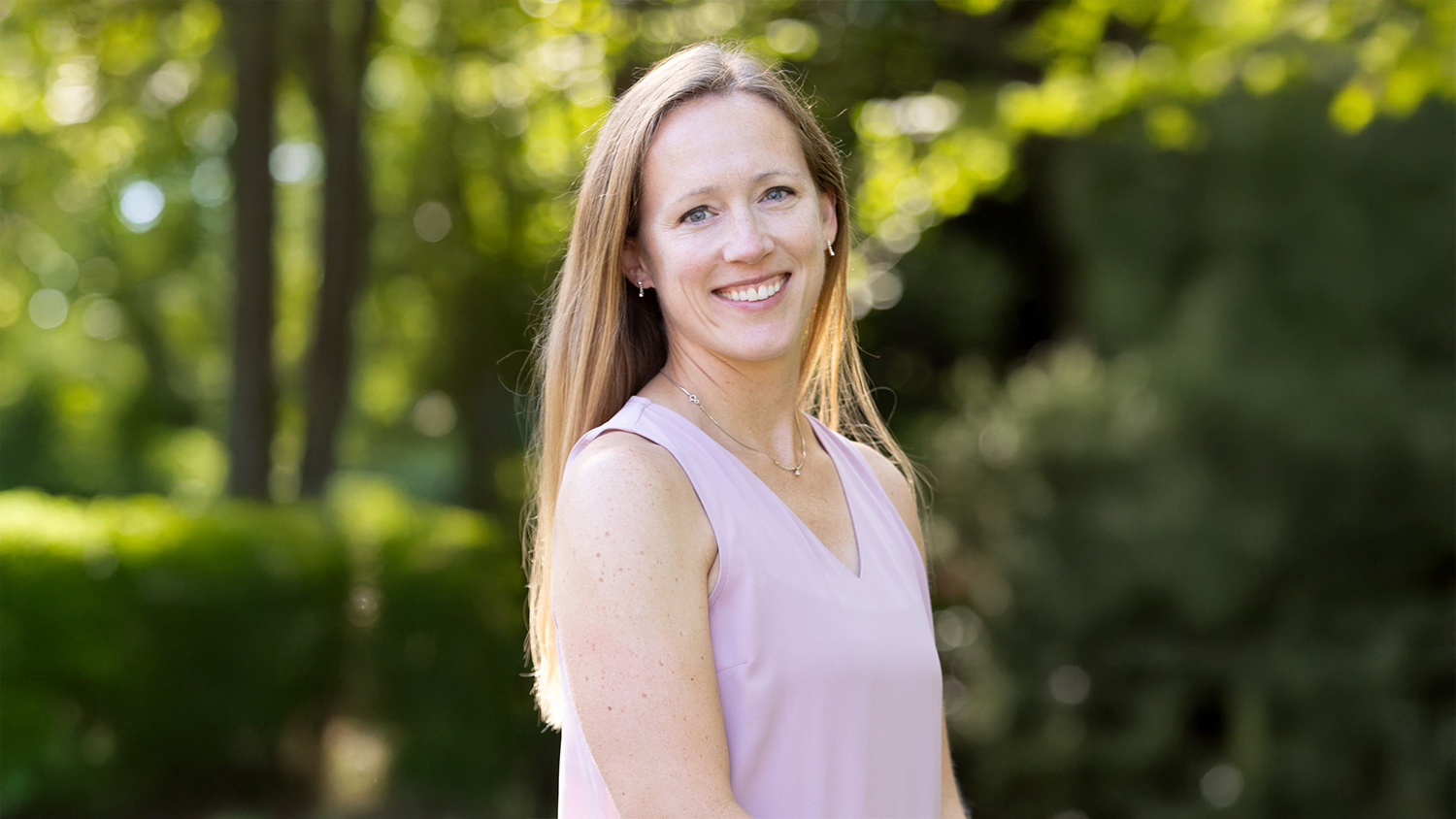Honors Forum Presents: Catherine Cabrera
The leader of the Biological & Chemical Technologies Group at MIT Lincoln Laboratory is the featured speaker for the University Honors Program Forum on February 27.

By Meghan Teten
All students, staff and faculty are welcome (even if you are not enrolled in Honors Forum this semester) to join the University Honors Program (UHP) on Monday, Feb. 27 as it hosts Catherine Cabrera, Ph.D., the leader of the Biological & Chemical Technologies Group at MIT Lincoln Laboratory. Cabrera will speak in Witherspoon Student Cinema at 3 p.m. about improving drug screening and diagnostics development using artificial organs.
Cabrera has been developing engineering approaches to address urgent needs in biodefense and pathogen countermeasure for 25-plus years, focused on translating research into operational capabilities. Her expertise includes chemical and biological engineering, molecular diagnostics and pathogen ID, systems analysis, and forensics and attribution.

Cabrera received her B.A. degrees in biochemistry and chemical engineering from Rice University and her Ph.D. in bioengineering from the University of Washington. Her doctoral research was focused on developing fieldable technologies to detect pathogens in resource-limited environments. She maintained that focus when she joined MIT Lincoln Laboratory in 2002, initially working on hardware and software development for biowarfare agent ID, again for field-forward applications.
Cabrera has been part of several Research & Development 100 award-winning teams, including one for the PANTHER automated cell-based bioaerosol sensor, which has since transitioned to operational use for building protection and plant pathogen detection. She currently oversees a diverse program portfolio, which includes chemical/biological threat identification, attribution and characterization; cyber/bio security; biotechnologies for resilient supply chains; microbiome and human health & performance; advanced DNA forensics; and engineered and synthetic biology R&D. She is a current member of the National Academies Standing Committee on Biotechnology Capabilities & National Security Needs.
- Categories:


